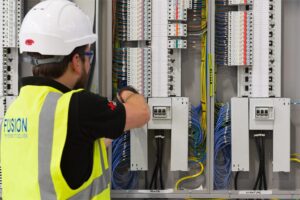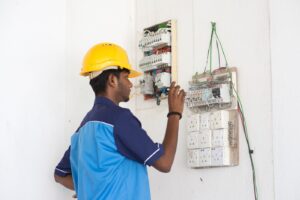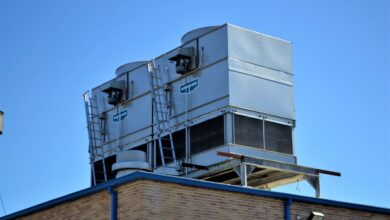Commercial Electricians In USA

commercial electrical
A commercial building utilizes a wide variety of electrical services. Different areas of the building require different components, from parking deck lighting to office building lighting. This type of electrical contractor can handle projects that residential electricians won’t take on. They also know the ins and outs of a commercial building, making them a good choice for a variety of projects. Read on to learn more about the benefits of commercial electrical contractors. After all, your commercial building’s electrical systems are critical for the operation of your business.
Commercial electrical contractors are in-house professionals
When hiring a commercial electrical contractor, you have to consider whether you want an in-house professional or a freelancer. Commercial electricians work for a single business, and some prefer to have an in-house team. Others, however, prefer an outside electrician to perform the work. Some companies choose to hire in-house professionals, while others opt for a contractor with both residential and commercial branches. The choice is yours, and you should do your research before hiring someone.
The main difference between an in-house professional and an outside electrical contractor is that the latter deals with a much larger project. An industrial building may require months of work, while an office building or mall might require a skill workforce. The contractor may be more willing to take on a more challenging project if it will result in higher profit. If you choose to use an outside electrician, make sure that you have a blueprint of the building.

They work in enclosed spaces
If you’re performing commercial electrical works in enclose spaces, there are a few things you need to do to ensure that all employees are safe and hygienic. First, you need to train all workers to be aware of the hazards in confine spaces. Depending on the nature of the work, you may need to do ongoing testing. Also, be aware that conditions may change during the work itself, making it more difficult to predict and assess potential hazards.
Another danger of enclosed spaces is entrapment, which is very common in industrial settings. Working in confine spaces can also pose risks to employees, as they’re closer to machinery components. Not only do these spaces restrict airflow, but their poor quality can cause illness and even loss of consciousness in workers. Natural ventilation is often insufficient to keep the air breathable, so chemicals and toxins can be release into the air.
They are more prone to fire
Electrical fires are one of the most common causes of damage to nonresidential buildings. In fact, in the past ten years, the cost of fire relate to malfunctioning electrical systems is about $207 million. Older commercial buildings are especially susceptible to fire because of faulty electrical systems. Updating your commercial electrical system is important for your safety and efficiency. If you are in doubt about the condition of your electrical system, you can test it yourself by regularly tripping circuit breakers. A tripped circuit breaker is usually an indication of a problem with the electrical panel. It also means that you’re overloading outlets. If you have a tripped circuit, you need to take care of the problem.
Overload electrical panels can also cause fires. Installing fewer electrical fixtures can reduce the risk of fire. Also, inspect your electrical panels to find signs of corrosion and wear. While these issues are common causes of fire, they’re not always the cause of an electrical fire. You can save a lot of money and unnecessary damage by training your employees to recognize the warning signs of a fire. The right electrical panel installation will help reduce the risk of fire, and will ensure that your building is safe from any hazards.

They can take on projects that residential electricians can’t
While there are some common similarities between commercial and residential electricians, the two different types of electrical contractors often specialize in different areas. Residential electricians generally install single-phase systems in homes, while commercial electricians often work with multi-phase systems. A commercial electrician should be familiar with both types of electrical systems in order to effectively perform their job. These electricians are often require to obtain permits in order to work on large projects.
Unlike residential electricians, commercial electricians specialize in electrical systems in large commercial buildings. They handle projects ranging from thousands of volts to several thousand. While residential electricians typically work on smaller-scale projects, commercial electricians are familiar with three-phase designs and the complexities of large-scale commercial projects. Residential electricians also use plastic sheathing and tube conduits to hide their wiring systems, while commercial electricians typically use bare metal.
They are more prone to safety hazards
A recent study analyze a national database of occupational injuries and fatalities to determine whether commercial electrical contractors are more likely to experience a fatality or an injury. Researchers analyze data from the Occupational Safety and Health Administration’s IMIS accidents database to determine the causes of electrical contractor injuries and deaths. The results indicate that occupational injury and death rates were significantly higher for commercial electrical contractors other construction industry workers.
Injuries relate to the upper extremities are more likely to lead to serious accidents than those involving the lower body. This is because electrical contractors must be more careful about these injuries because they can escalate into severe injuries affecting the entire body. For this reason, injuries involving upper extremities should be evaluate closely by safety managers. They can also develop target interventions to reduce the frequency and severity of electrical contractor injuries.




